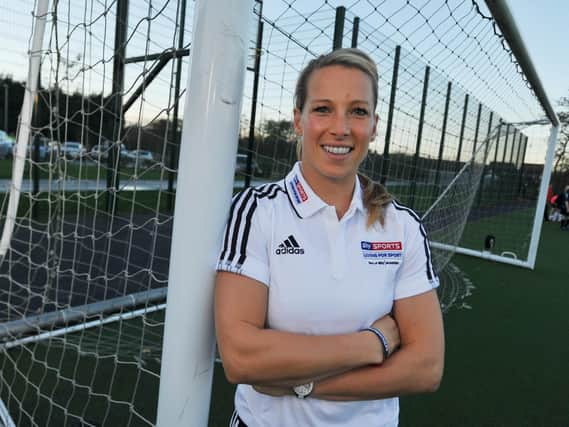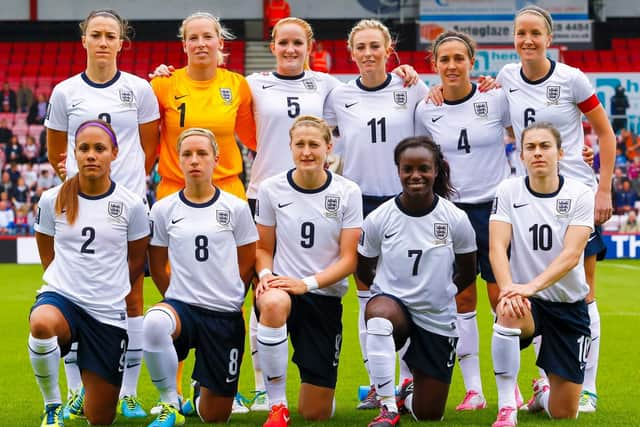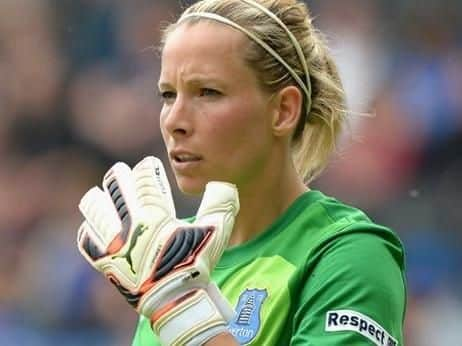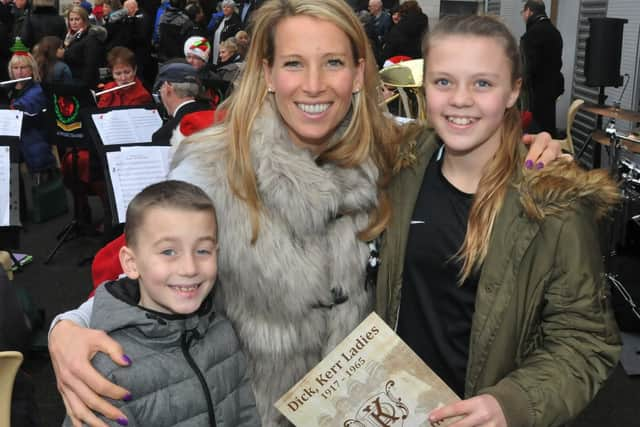From Burnley to BT Sport, Accrington to America: the Rachel Brown-Finnis story


Warm and eloquent, Rachel was born in Burnley in 1980, and was in the vanguard of the professionalisation of women's football in England during a 20-year career which saw her represent clubs in three different countries, play in the 1996 FA Women's Cup Final at the age of 15, and feature for Great Britain at the London Olympics in 2012.
Having retired in 2015, Rachel - who earned 82 caps for England having made her first appearance as a 17-year-old - has since forged an career in the media, appearing on the BBC and on BT Sport's coverage of the Women's Super League, and has watched the sport to which she has dedicated her life blossom in the past two decades.
Advertisement
Hide AdAdvertisement
Hide Ad"I never had ambitions of playing for England," said Rachel on her early years as an Italia 90-inspired youngster. "The women's side of football wasn't visible at all, there weren't any girls' teams. In this day and age, there are high expectations of what should be provided whereas back when I started, girls just didn't play football. It was a bit of a novelty [but] I never held any resentment because I didn't know any different."


Refusing to let the lack of girls' teams stop her, Rachel played for her school's boys' team and for Bank Hall United until, aged 11, she saw an ad for former Scotland international Bob Wilson's Goalkeeping Camp in Match magazine. The only girl alongside 50 boys, Rachel was named Goalkeeper of the Camp, and was presented with an award from David Seaman.
Speaking to Rachel, the determination that defined her early career still shines through, a determination intrinsically linked to her roots in the North West, explaining: "It's that love of football: we come from traditional, working class backgrounds which breed top-class footballers.
"Look at the England teams: a lot of the youth players are born and bred in the North West," she adds. "I feel a lot of pride in those young players from a similar area and background as I am."
Advertisement
Hide AdAdvertisement
Hide AdIn an era before Burnley FC Girls and Ladies was established in 1995, the precocious Rachel joined the Accrington Stanley Ladies academy as an 11-year-old and was told she was "14" for three seasons to allow her to get game time. She then moved to Liverpool Ladies in 1995 and made an immediate impact, playing in the 1996 FA Women's Cup Final at the age of just 15.


Keen to broaden her horizons, Rachel then spent five years in America, accepting a three-year scholarship at the University of Alabama in 1998 before moving to Pittsburgh. Returning to England in 2003, she signed for Everton Ladies where she was to ply her trade for the next 11 years.
"I'm so pleased I went through the transition of women's football from when it was completely amateur to central contracts for female international players, which was massive," said Rachel. "I've seen the evolution over my 20-year playing career.
"The main thing that has changed off the pitch is the attitude: it's now normal to see women's football on the TV [and that] certainly helps," she added. "If people can't see it, they can't like it, so seeing it on TV, hearing it on radio, and having it on social media is massive.
Advertisement
Hide AdAdvertisement
Hide Ad"Seeing how far the game has come is vindication of our efforts; we left no stone unturned," she said. "I was a teacher; my normal day was getting up at 6:30am, get to school for 7:30am, do my normal teaching day until 4:30pm, go to the gym at about 6pm, training from 8pm to 10pm, and get home at 10:45pm. And repeat."


But despite the progress made, there is still a way to go.
"The FA have done a wonderful job with the WSL, but every team in the top division needs to be fully-professional," she said. "And knowing what a top women's club's budget is and comparing that to what men's clubs earn, it wouldn't be a huge undertaking for every Premier League club to have a top level women's club.
"I'd love to see that happen and for that to be a stipulation from the Premier League to their clubs that that's a requirement," she added. "And I want to see more people actually at games, that's something that needs to be improved."
Harking back to her long days as a teacher combining a full-time job with the lifestyle of an international athlete, Rachel simply says: "We didn't question it. It was hard work and it didn't leave much room for anything else, but we knew if we wanted to play for England, it was the only way.
"We conducted ourselves in a professional manner because that's what we wanted to be," she added. "We were aware that our sport was on the verge, that we were the pioneers. We were proud."